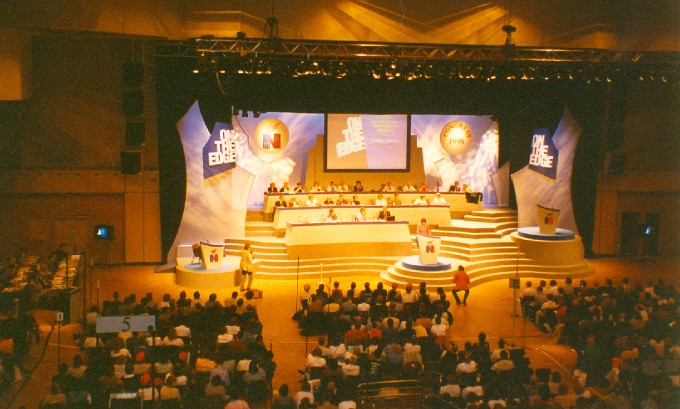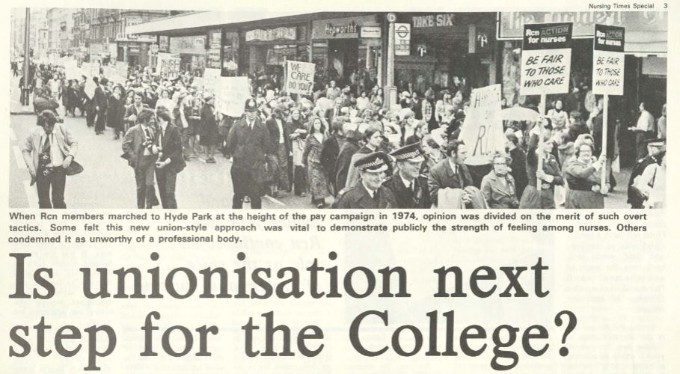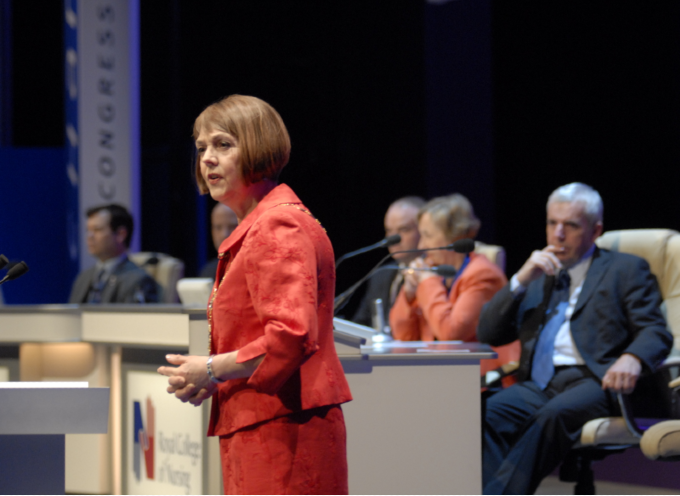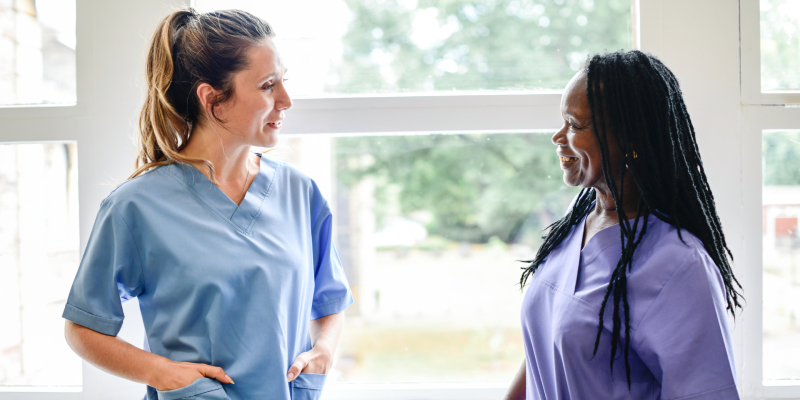Although RCN Congress couldn’t go ahead this year, newly digitised material held in our library and archive collections is letting us relive Congresses past. Former RCN President Maura Buchanan helps us explore how the event has evolved
The first official RCN Congress and Exhibition took place in Harrogate in 1969. It was part of a push to make the RCN more lively and inclusive, which began two years earlier when the RCN Representative Body opened to all members around the UK, who were encouraged to submit topics for debate.
It was far from the event we know now though. RCN Congress has evolved into a polished, impressive event with inspiring speeches and debates that prompt headlines, direct the College’s priorities, and even result in changes to law. This evolution can be traced in the newly digitised Congress archive.

“Now, you’ve got a very professional stage and set. After the Labour and Tory party conferences, RCN Congress is next in terms of size and importance,” says Maura Buchanan, former RCN President.
Maura first attended Congress in 1986, as a third-year nursing student, and went on to chair the event from 1999 to 2002. “This year would’ve been my 35th consecutive Congress,” she says. “My first Congress was amazing. Here you were, seeing people that you’d read about – people like Sylvia Denton who eventually became President. Dame Sheila Quinn was the President that year and she was my idol.
“You get to meet your heroes and see that they are just normal people and you can follow in their footsteps.”

Inspired by the people she’d met and the debates she’d watched, when a student item came up on the final day, Maura took to the microphone. It was to be the first of many appearances on the RCN Congress stage.
In 1986, Congress was a week-long event and there were many more topics up for debate than there are now. “Some of the issues have not changed in 30 years, but the structure of Congress has,” Maura says. “We used to have around 50 items on the agenda, there weren’t as many of the keynote speakers, awards and lectures we have now.”
RCN Congress has always been evolving. Fringe events have expanded, with the RCN forums leading more and more educational sessions that can be part of delegates’ CPD. Meanwhile, the first annual John Goodlad Memorial Lecture took place in 1993, and by 1998 cameras filmed the proceedings and broadcast speakers onto large screens.

Many significant decisions have been influenced by Congress too – from the 1976 vote for the RCN to become a trade union, to the fierce debate in 2000 that led to widening membership to include nursing support workers and cadets.
For Maura, standout moments include politicians directly engaging with RCN members – something that’s been lacking in years when Congress is held after election season. “It is important that they take nurses seriously politically, and that’s what we want,” she says.
In 2002, Maura’s final year as Chair of Congress, Secretary of State for Health Alan Milburn came to speak and take questions from delegates. Maura asked the final question: “I said: ‘My daughter is a policewoman – why are nurses not paid as much as other public sector employees?’ The hall erupted. I got a standing ovation. Lo and behold, it was the first thing on the six o’clock news.”
Seven years later, Maura was RCN President when, for the first time, a sitting Prime Minister addressed Congress. It was Gordon Brown, and he was followed by leader of the opposition David Cameron.

Although there’s been less of a political presence in recent years, Congress has become less London-centric, more inclusive and remains a vital way to bring together nursing voices. “You’re hearing from the frontlines, the lived experiences of nursing staff,” Maura says. “Those on the ground, including our reps and active members, spend a huge amount of time working, and Congress energises them and brings their experience into the organisation.”
Continuing to improve Congress means encouraging a wide variety of delegates with different backgrounds and experiences to get involved – something Maura has always tried to do.
“If you’d told me in 1986 that one day I’d be opening Congress, I would’ve thought you were joking,” she says. “We need to nurture new talent to make that happen. I was encouraged by individuals at those earlier Congresses and that led to me stepping up. We should encourage others to get up and speak and make sure everyone feels part of the UK nursing family.”
Track the evolution of Congress
The RCN Library and Archive team has catalogued and digitised Congress materials held in its collections, and shared this online in a new digital archive for members. There are programmes, newsletters, and audio and video recordings of debates across five decades.
Did you know?
From September, the RCN is hosting a series of online debates, drawn from the 2020 Congress programme, to allow members from across the UK to have their say on key nursing issues. Find out more.








